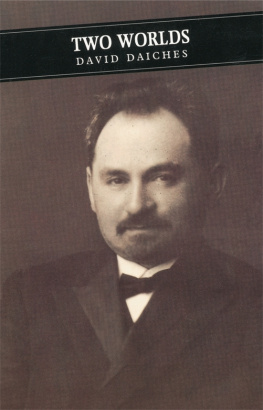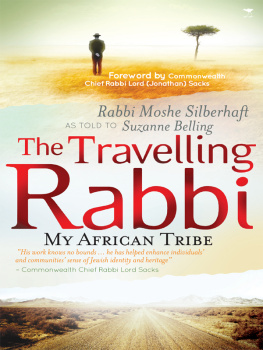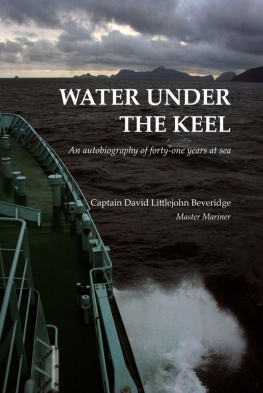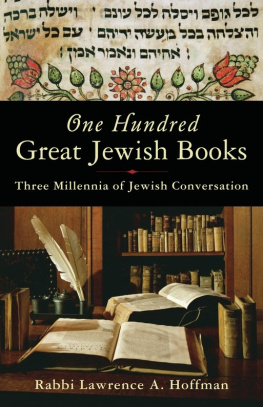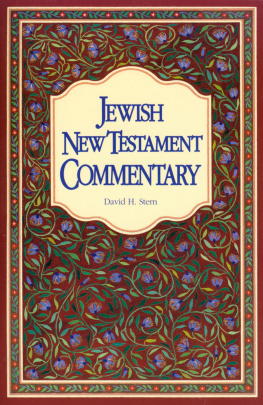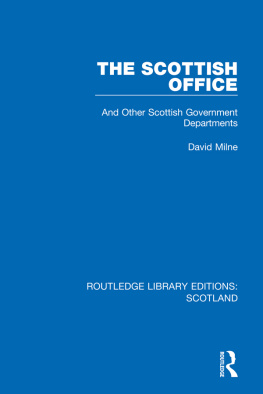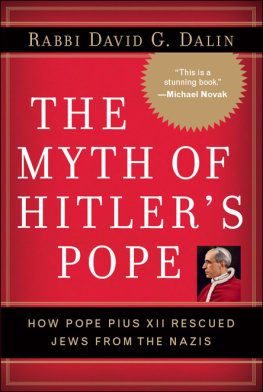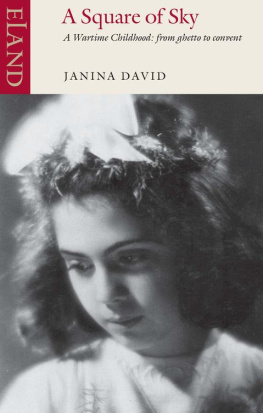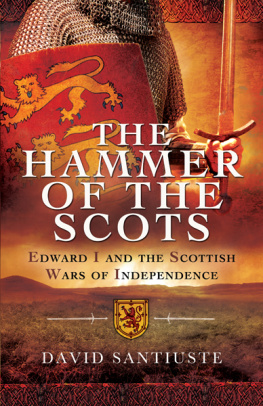During the thirty years that have passed since I wrote this book, in a mood of pure self-indulgence, I have been pleasantly surprised to see it taking its place as a piece of sociocultural Scottish history. Looking back now, I can see more clearly than when I was writing it that I was documenting a short-lived period of cultural interchange in the life of Edinburgh that has its counterparts in other cultures and other periods. I have had letters from places as far apart as New York, Cape Town and Hong Kong from people whose recollections of their own childhood among two cultures were similar to my own. Yet there was something very special about the ScottishJewish interchange in Edinburgh in the years between the two world wars, that derived from the texture both of Scottish and of Jewish history and more specifically from the educational and cultural scene set by the city of Edinburgh.
One of the reviewers of the first edition of the book remarked that it was clearly a record of happiness in spite of the cultural tensions it documents. That is on the whole true. Further, it is perhaps wrong to talk of cultural tensions, for the two cultures of my childhood did not fight each other but dove-tailed into each other. That is certainly how I saw them. I am always surprised when people misquote the title of the book as Between Two Worlds, as the whole point of my story is that I was not between two worlds but equally at home in both. That was my good fortune, and I have never ceased to be grateful for it.
CHAPTER ONE
A windy Spring day in Edinburgh, with bits of paper blown down the street and two small boys from Sciennes School kicking an empty tin can along the gutter. Across Melville Drive, in the Meadows, workmen are busy building stands and other wooden erections for the Highland Societys annual agricultural show, held in Edinburgh this year, though generally further north. The year is 1919, and I am six and a half years old. I am swinging on the heavy iron gate of our house in Millerfield Place, an exercise which gives me peculiar pleasure because we have only recently moved into the house and this variety of gate, though common in the city, is new to me. I am wearing a pair of dirty navy-blue shorts and a far from fresh brown jersey, and my uncombed hair is blowing about my face. My mother would be shocked indeed if she could see me now, but she is ill in a nursing home in Davidsons Mains (it has the enchanting name of Silverknowe, and I imagine it as a shining castle set beside the sea) and the aunt who has come up from London to look after my brother and sister and myself is out somewherewith a young man, as my brother Lionel and I knowingly tell each other, though this is mere surmise: we are already precociously aware that my mothers younger sisters should be looking for husbands. As for my father, he is out at a meeting, or working in his study, or busy trying to reconcile some dispute among different factions of his congregation. We children are free to join in the rich street life of the Edinburgh keelies. The noise of the wind and the rattle of the tin can sound like a tocsin of freedom in my ears. There is an air of excitement in the afternoon.
I hear my name called: David! Where are you? Lionel is waving from the bottom of the street. Come on and watch the workmen, he calls. I hang on to the outside of the gate as it swings round and clicks itself shut with the automatic device that still fascinates me, then jump off and run down to meet him. We cross Melville Drive, climb over the iron railings that separate it from the Meadows (there are several open entrances, but we prefer to climb) and find ourselves amid heaps of stacked piles of wood. There are several children swarming around these, and we join them, clambering up and slipping down, chasing each other between the stacks, shouting at the top of our voices. Then one of the workmen, who are busy further down the field, sees us and shouts: Hey, get oot o that! We shout louder than ever, and the workman makes a threatening gesture. I find myself among a chorus of children chanting: Ha, ha, ha, ye canna catch me! Ha, ha, ha, ye canna catch me! I am not happy about this defiance of the workmen, but I am encouraged by being a member of a group, and chant as loud as anyone. Then a shrill whistle blows, and the cry goes up: The parkie! The parkie! and we all stream off towards the Middle Meadow Walk as the park-keeper, in his official uniform, whistles and waves at us.
Memory blurs the next part of the scene. Was that the afternoon when we landed up in front of the little dairy in Brougham Place and one of the girls went in and bought a hapenny stick of barley sugar which she licked meanly and aggressively in front of our jealous eyes, ignoring pleas to give everyone a sook? Or did we go in the other direction, past the tennis courts through the narrow ways that lead into George Square and thenbut one might go anywhere from there. How well we got to know certain corners of the city! All the streets that bounded the Meadows, of course: the austere flats of Marchmont, the sadly fading gentility of Buccleuch Place, the unpretentious little shops of Lauriston, where the cable cars bumped and clattered their way to Tollcross. And sometimes the more ambitious expeditions to Arthurs or southwards through the quiet shaded streets with their genteel detached houses and walled gardens to Blackford Hill, where uniformed nurses walked their gaitered brats and lovers lay behind the whin bushes. We walked, skipped and ran unnoticed distances, often discovering with wonder that we were miles from home and returning breathless to be scolded for being so late and to murmur apologetically that we didnt know the time.
1919 was the timeless year. The dislocation in family life produced by my mothers going to a nursing home, the sense of loss and bewilderment that Lionel and I both felt when we found the normal domestic routine shattered with the departure of the presiding genius of the home, gave way, under the influence of the natural resilience of childhood, to an abandoned exploration of our new freedom. Small as I was, my mothers illness gave me the freedom of the Edinburgh streets, through which I wandered, sometimes alone, often with Lionel, sometimes with a group of keelies, utterly insensible of the passing hours. Even on school days I kept this indifference to time. I would dawdle on the way to school, stopping to play with a cat or throw stones for a dog, and find to my astonishment that I was late on arrival. Once I got absorbed in rattling a stick along the railing in a certain rhythm, and followed the streets wherever I could find railings. The thing was never to allow the rhythm to stop for a moment; when there were unavoidable gaps I had to tap the rhythm out on the pavement, stooping, or on a wall if there was one handy. I finally got to school at 10 oclock an hour late and I still remember my bewildered sense of unreality when I found myself walking into a classroom long settled down to its days work. The teacher was more puzzled than angry, and I was not punished. The incident sticks in my memory as a symbol of a state of mind which I associate entirely and uniquely with that Spring of 1919: the pattern of the world I lived in had temporarily disappeared, routine was succeeded by a feeling of perpetual adventure, and I would discover with amazement that school began at the same hour every morning and that some strange thing the teacher made us do on, say, a Thursday afternoon was really the regular procedure for that day.
We did not go away for our summer holidays that year, because the whole family situation was in a state of confusion. So we stayed at home, and I wandered about the streets and played in the Meadows, absorbing the sights and sounds of an Edinburgh summer so that the Edinburgh of 1919 is still in some ways more vivid to me than the city as it became later. Of course, the city has not essentially changed it has changed less, I think, than almost any city in Britain but the rattling cable cars were soon to be replaced by electric trams (which are now, in their turn, giving way to buses), the lamplighter, celebrated by Robert Louis Stevenson, would in a few years be supplanted by an automatic device, and the feel of the city, which in 1919 was still, I think, essentially pre-First World War, was to undergo some subtle changes. But the lamplighter, whom I was to watch with such satisfaction in the early dusk of November and December, I never saw that summer: daylight stretched endlessly into the night, it seemed to me, and even in bed I could hear through my open window the cries of older boys playing cricket in the Meadows and the thud of bat against ball.

